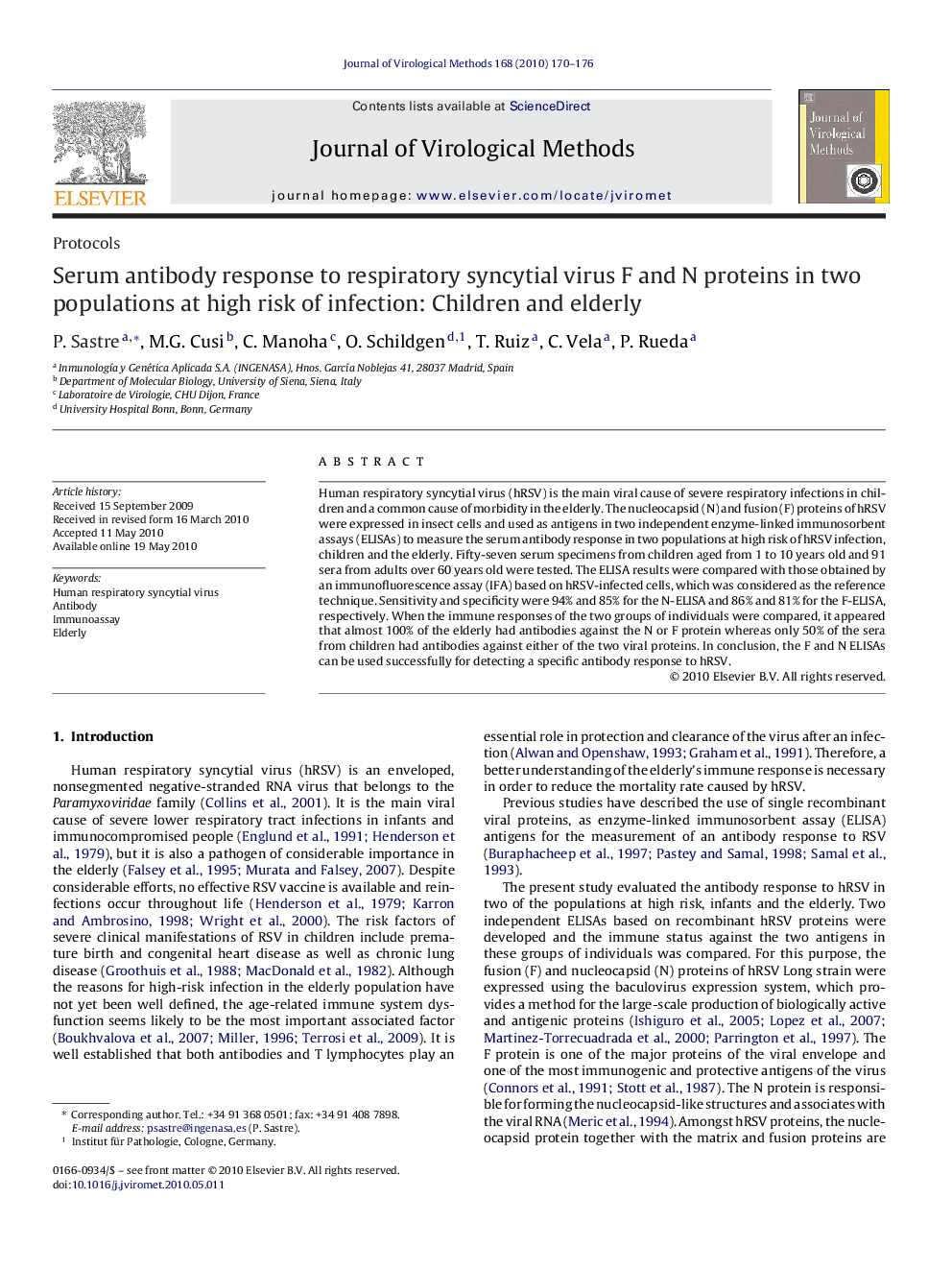| کد مقاله | کد نشریه | سال انتشار | مقاله انگلیسی | نسخه تمام متن |
|---|---|---|---|---|
| 3407063 | 1593495 | 2010 | 7 صفحه PDF | دانلود رایگان |

Human respiratory syncytial virus (hRSV) is the main viral cause of severe respiratory infections in children and a common cause of morbidity in the elderly. The nucleocapsid (N) and fusion (F) proteins of hRSV were expressed in insect cells and used as antigens in two independent enzyme-linked immunosorbent assays (ELISAs) to measure the serum antibody response in two populations at high risk of hRSV infection, children and the elderly. Fifty-seven serum specimens from children aged from 1 to 10 years old and 91 sera from adults over 60 years old were tested. The ELISA results were compared with those obtained by an immunofluorescence assay (IFA) based on hRSV-infected cells, which was considered as the reference technique. Sensitivity and specificity were 94% and 85% for the N-ELISA and 86% and 81% for the F-ELISA, respectively. When the immune responses of the two groups of individuals were compared, it appeared that almost 100% of the elderly had antibodies against the N or F protein whereas only 50% of the sera from children had antibodies against either of the two viral proteins. In conclusion, the F and N ELISAs can be used successfully for detecting a specific antibody response to hRSV.
Journal: Journal of Virological Methods - Volume 168, Issues 1–2, September 2010, Pages 170–176